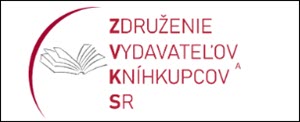
 In Bratislava. Image – Getty: Stephen Kuhn
In Bratislava. Image – Getty: Stephen Kuhn
By Jarosław Adamowksi | @JaroslawAdamows
Government Makes a U-Turn
Amid a backlash from the Slovak publishing sector and other stakeholders, the country’s government has decided to scrap its earlier plans to increase its value-added tax (VAT) on books to 23 percent.
In a move that caught some by surprise, the authorities decided to slash the levy to 5 percent. Local industry representatives say that while 2025 is likely to be a challenging year, the tax cut can help offset some of the pressures the sector is facing.

 Juraj Heger, president of the Association of Slovak Publishers and Booksellers (ZVKSR) and director of the Bratislava-based publishing house Slovart, tells Publishing Perspectives that, in 2024, the market experienced a demanding year.
Juraj Heger, president of the Association of Slovak Publishers and Booksellers (ZVKSR) and director of the Bratislava-based publishing house Slovart, tells Publishing Perspectives that, in 2024, the market experienced a demanding year.
The war in neighboring Ukraine, Heger says, “is just across our border and our government decided to ‘consolidate’ the country’s finances by increasing several old taxes and introducing some new ones.
“People are scared of what is to come and in the Christmas season, they looked like they didn’t want to overspend,” Heger says. “From the first figures we have from our retailers, it looks like the value of the market might stay or decrease just slightly but the number of books experienced a drop.”
For many small publishers, the further development at the state-run Art Support Fund (Fond na podporu umenia) could be crucial for financial stability this year, he says.
“Since September’s announced increase of the VAT from 10 to 23 percent on books,” Heger says, “the government has made a U-turn and our VAT drops to 5 percent.
“The cherry on the cake is the fact that both ebook and audiobook sales pulled level with printed books just as the VAT dropped from 20 percent to 5 percent,”
“We are still not sure whether we lobbied this well or whether the whole thing was a performance meant to distract people’s attention from other more drastic measures the government has made, causing even bigger holes in people’s pockets.
Heger says that while there’s not much hope for a change for the better in 2025, the VAT cut will no doubt help to offset some of the pressures that are currently experienced by the Slovak publishing industry.
At the same time, for his publishing house Slovart, last year was a successful one.
Czechoslovakia was broken into the Czech Republic and Slovakia in 1993, but a large number of Slovaks continue to read books in both their own language and in Czech. While Slovak readers continue to purchase Czech-language titles, Slovakia’s publishers and booksellers report that sales of Slovak-language books have expanded in past years. and in Slovart’s case, many of the publisher’s bestsellers are written by Slovak writers.
“As a company, we did really well and managed to grow further,” Heger says, “while keeping our production spending on the same level as in 2023 and thus keeping our cash-flow under control.
Apart from established local authors Dominik Dán, Juraj Červenák, and Boris Filan, who wrote our bestselling fiction books of the year, we did very well with books by Sarah J. Maas, the “Dogman” series, and the “Football Superstars” series for early readers.
“Our most successful book on the more expensive end of our list was Depeche Mode Live, an account of all the tours of the band, which is extremely popular in Slovakia.”That’s a book we licensed from Germany and enhanced with information about all concerts the band played in our country.”
For 2025, some of the main events in Slovart’s pipeline “will no doubt be the 20th anniversary of the first book by our crime superstar Dominik Dán,” Heger says. We’ll publish book N0. 40 in his series about detective Kraus and his colleagues and will celebrate when his total sales cross 2 million copies.’”
More from Publishing Perspectives on Europe is here, more on the Czech Republic—Frankfurter Buchmesse’s 2026 guest of honor—is here, and more on value-added taxation in publishing is here.
